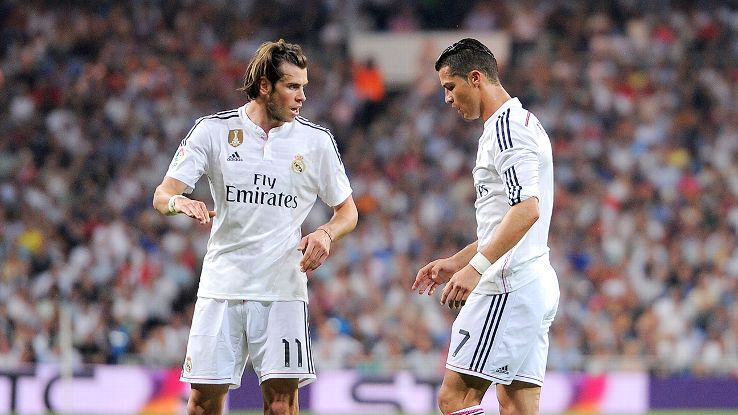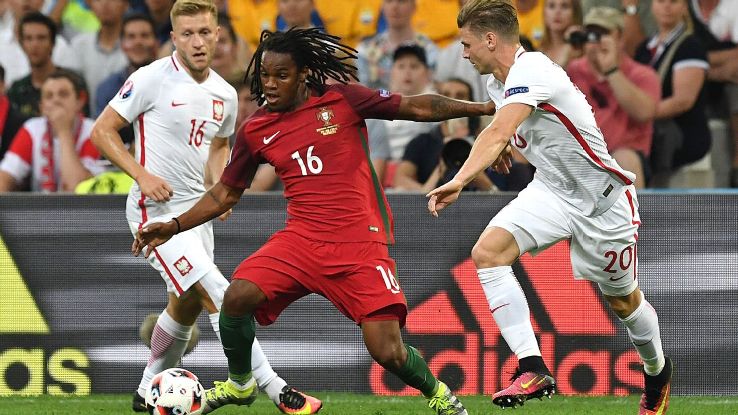So now, can Wales do a Greece or Leicester? But early in the competition I had already put small amount on Italy and their route to final (if ) will be the toughest, if they overcome Germany, I think France awaits them.
Either France or Iceland. Italy got chance because of their BBBC.

By Gabriele Marcotti
from espnfc.com
Italy's BBBC - Buffon, Bonucci, Barzagli and Chiellini anchor Italy's formidable back line
BORDEAUX, France -- What do you do when your tactical game plan is crushed underfoot by the opponent?
When the Germans rumble into your final third, destroying whatever semblance of advanced press you might have had and sending your midfield to search for cover?
That's when you go to the well; the safety blanket that comes standard with the job of coaching Italy. Some roll themselves up in it from the start. Others, like Antonio Conte, have kept it for special occasions.
We're talking about that seemingly inveterate quality Azzurri sides have harbored for the past 60-odd years: The ability to defend. And, come Saturday night, this will be epitomized by a goalkeeper -- Gianluigi Buffon -- and his three centerbacks -- Leonardo Bonucci, Andrea Barzagli and Giorgio Chiellini.
Call them the BBBC, a riff on Real Madrid's BBC -- Karim Benzema, Gareth Bale and Cristiano Ronaldo -- for defensive connoisseurs.
This quartet is the only portion of Conte's lineup that could seamlessly hold a candle to Italy sides of yesteryear. Midfield and attack, as the manager himself has admitted, are low on quality and high on work rate, enthusiasm and tactical nous, all things you can learn. But the BBBC, while no slouches in the above departments, are blessed with nature's gifts to go with the nurture they've had over the years.
Buffon made his Serie A debut 21 years ago and won the first of his 159 Italy caps two years after that, at the age of 19. He is a physical freak, who is the most expensive goalkeeper in history and the only goalkeeper in the 50 biggest transfers of all time. He's also the only one Italians place alongside the legendary World Cup winner Dino Zoff, which is about the highest accolade Italy can give its own.
Bonucci showed size, athleticism and a ton of technical ability from a very young age, which is why Inter snapped him up at the age of 18. By 22 he was a starter in Serie A and, a year later, became a regular at Juventus.
Chiellini was in the first XI in Serie A at Fiorentina -- albeit as an oversized left-back -- by the time he turned 20, which is also when he made his Italy debut. A year later he moved to Juve, where he's been the defensive bedrock for the past decade.
As for Barzagli, his route to the top was a bit more circuitous. A native Florentine, he's a recycled midfielder who, like Buffon, won the 2006 World Cup. Two years later he opted for a move abroad, where he won a Bundesliga crown at Wolfsburg. Barzagli returned to Serie A to join Juventus in January 2011 and, apart from injury layoffs, has been a regular alongside the other three ever since.
In other words, with the possible exception of Barzagli, the other three are guys who were labeled superstars from a young age and lived up to the tag. That's a rarity in a world where we so often search for the next big thing and where the burden of expectation can be crushing.
What's more, while you can talk endlessly about professionalism and hard work, above all these are superbly gifted athletes though, particularly in the case of Buffon and Bonucci, they quickly added technique to their repertoire. In fact, of the four, Barzagli may be the most athletic, despite his size and 35 years.
What makes them fascinating as a unit is that they've been teammates at club level since January 2011 and worked together under Conte at Juventus for three seasons. It's hard to put an exact value on the chemistry and camaraderie that develops in those circumstances, but it is something to consider. Defense is perhaps the part of your lineup that most relies on the synchronicity of movement and common understanding.
Most managers at Euro 2016 not only have to put together guys who play for different clubs and perhaps might have played together a dozen times if they're lucky, but they also only get a few weeks to drill and turn them into a unit. The BBBC have played together hundreds of times and spent three full club season absorbing the Conte credo.
(Of course, simply playing together for a long time is no guarantee of success. The Russian center back pairing of Vasili Berezutski and Sergei Ignashevich have played alongside goalkeeper Igor Akinfeev for club and country since 2004 and worked under Leonid Slutsky at CSKA Moscow since 2009, yet Russia flopped at the Euros and conceded six goals in three group games.)
In terms of personality, they are different. Buffon is the former Golden Child turned charismatic leader, perhaps the most outgoing of the quartet. Chiellini is the one with a university degree and the nasty, uncompromising, "by any means necessary" streak, though then you look at his wide eyes and prominent nose -- especially when appealing for a foul, which he does often -- and it's hard to dislike him.
Bonucci is the one who employed a mental coach and psychologist, but also the guy who, when out with his wife and baby, was faced with a gun-toting mugger and reacted by whacking the guy in the face, making him flee. And then there's Barzagli the gentle giant, who is the most laid-back and soft-spoken of the four, but also probably the most cultured.
From Conte's perspective, these guys are plug-and-play and this is not the part of his team he needs to worry about. How to replace Daniele De Rossi -- assuming he does not recover by 9 p.m. local time Saturday night -- with Thiago Motta suspended and nobody else capable of filling the role of midfield playmaker is presumably one of the things that keep the manager up at night.
Yet they also represent his Plan B, which for many years had been Italy's Plan A: Sit back and let these guys absorb the German pressure. It's not what Conte wants to do and with good reason: Italy don't have the attacking individual talent to rely on the counter. But if Conte can't figure out a rational way of playing without De Rossi -- or even going with an unfit De Rossi -- he may not have a choice.
Italy may have to go back to the well and hang on for dear life. It's not ideal but, then again, there are worse spots to be in than placing your faith entirely in the BBBC.



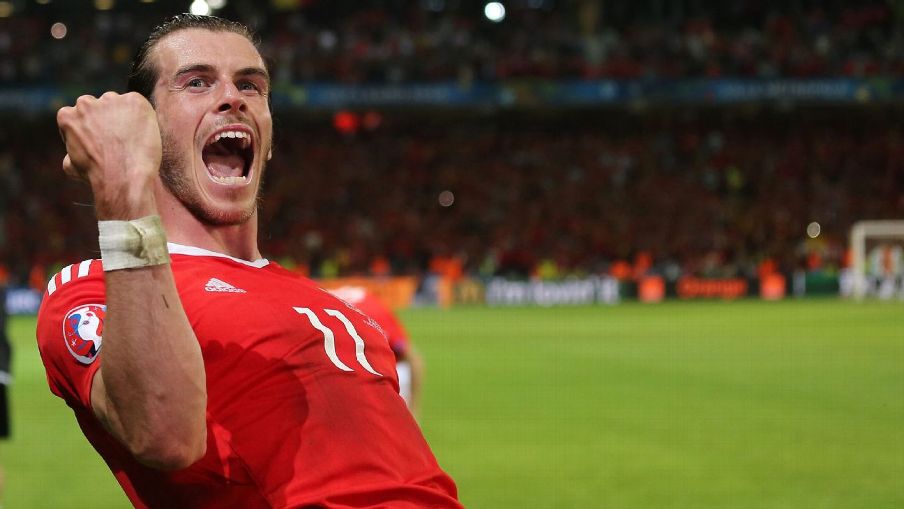
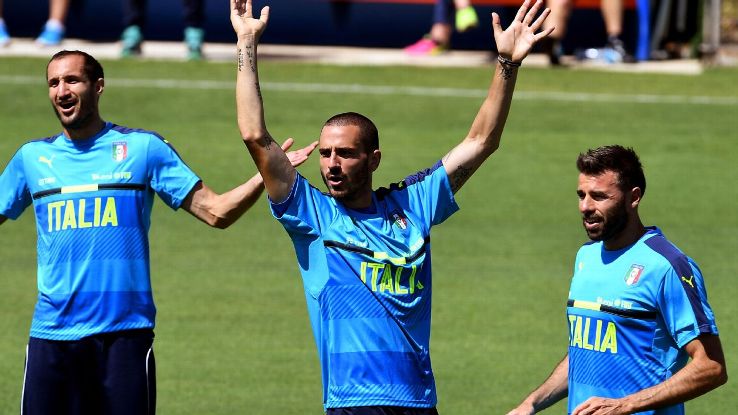
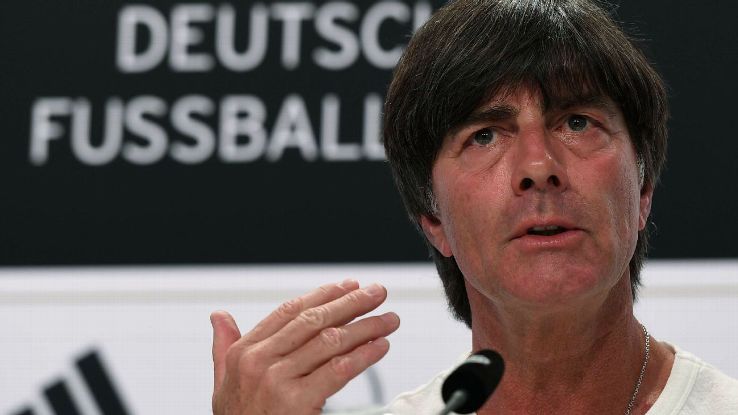

 Am i a traitor?
Am i a traitor? 